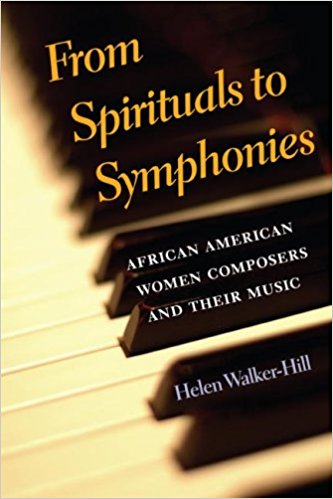About
Julia Perry was a composer, conductor, vocalist and teacher who surpassed countless social expectations by being a prominent African American artist in a world of music dominated by white elites.
She received both her Bachelor and Masters Degrees from Westminster Choir College and went on to study composition in Europe from famous composers including Luigi Dallapiccola and Nadia Boulanger. A few of her honors include two Guggenheim fellowships, the Boulanger Grand Prize, and a National Institute of Arts and Letters Award.
Perry’s own exploration of race throughout her life can be easily perceived through the audible changes to her style as time passes. For most of her musical upbringing she was surrounded by white teachers and colleagues, from her years at mostly white Westminster Choir College to her time in Europe studying from white teachers. Her early pieces include idioms of Spirituals and other African American influences but as she continued in her largely white American and European education her music began to follow the compositional techniques of her mentors. These techniques can be seen in pieces such as her well known Stabat Mater for contralto and strings.
In the 1959 she returned to the US after a long period spent in Europe, only to find that the racial atmosphere was nothing like that of the one she left behind years ago. During the 60s her view on race changed, and she began to embrace her race and express pride in her heritage, as well as anger at the injustice she was seeing around her. This affirmation of her racial identity can be heard in pieces like Symphony no. 10, which is also known as “Soul Symphony”, as well as her many settings of Spirituals such as “I’m a Poor Li’l Orphan in This Worl’” and “Free at Last”.
–Megan Maloney
Bibliography:
“Julia Perry.” The Black Perspective in Music, vol. 7, no. 2, 1979, pp. 282–282. JSTOR, www.jstor.org/stable/1214348. Accessed 24 June 2020.
“Julia Perry.” From Spirituals to Symphonies: African-American Women Composers and Their Musc, by Helen Walker-Hill, Univ. of Illinois Press, 2007, pp. 93–131.
Edwards, J. Michele. “Perry, Julia.” Grove Music Online. 2001. Oxford University Press. Date of access 24 Jun. 2020, <https://www-oxfordmusiconline-com.proxy.lib.umich.edu/grovemusic/view/10.1093/gmo/9781561592630.001.0001/omo-9781561592630-e-0000021377>
Related Information
Songs
Books
Sheet Music
Art Songs and Spirituals by African-American Women Composers (Vivian Taylor, ed.)
Composer(s): Margaret Bonds, Betty Jackson King, Dorothy Rudd Moore, Undine Smith Moore, Julia Perry, Zenobia Powell Perry, Florence Price
Song(s): Calvary (Spiritual) (1954) - Betty Jackson King
Come Down Angels (Spiritual) (1978) - Undine Smith Moore
Dry Bones (Spiritual) (1946) - Margaret Bonds
Free At Last (Spiritual) (1951) - Julia Perry
He's Got the Whole World In His Hand (Spiritual) (1963) - Margaret Bonds
I Am in Doubt (1975) - Undine Smith Moore
I'm a Poor Li'l Orphan in This Worl' (Spiritual) (1952) - Julia Perry
In the Springtime (1976) - Betty Jackson King
Is There Anybody Here That Loves My Jesus (Spiritual) (1981) - Undine Smith Moore
It's Me, O Lord (Spiritual) (1988) - Betty Jackson King
Lord, I Just Can't Keep from Cryin' (Spiritual) (1946) - Margaret Bonds
Love Let the Wind Cry… How I Adore Thee (1977) - Undine Smith Moore
My Dream (1935) - Florence B. Price
My Soul's Been Anchored in the Lord (Spiritual) (1937) - Florence B. Price
Night (1946) - Florence B. Price
Song to the Dark Virgin (1926) - Florence B. Price
The Negro Speaks of Rivers (1942) - Margaret Bonds
Three Dream Portraits (1959) - Margaret Bonds
Watch and Pray (Spiritual) (1972) - Undine Smith Moore
How Beautiful are the Feet
Composer(s): Julia Perry
Song(s): How Beautiful are the Feet
Voice Type: Medium Voice
Buy via Morning Star Music

